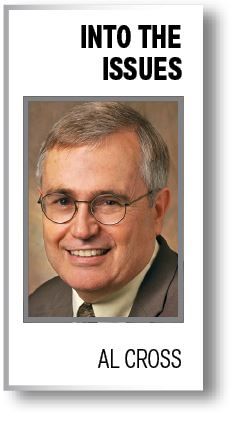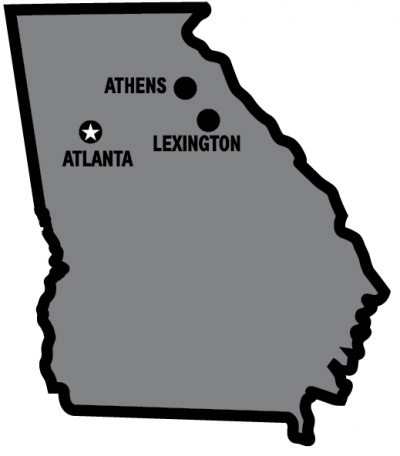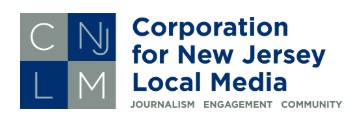NeSmith, Georgia publisher turns dying weekly into nonprofit to be maintained editorially by the University of Georgia
Al Cross
Nov 1, 2021


Two strategies that have been touted as ways to preserve community newspapers — the nonprofit model and university involvement – are combining to save a weekly newspaper in northeast Georgia. It should provide lessons for other rescue missions.
Ralph Maxwell Jr. was planning to close The Oglethorpe Echo this month, 30 years after he took over the paper from his father, 78 years after it came into his family and 148 years after it started. “It actually costs me money to keep it going,” Maxwell, 70 and ailing, told University of Georgia student Ian Allen this spring.
Allen’s story didn’t leave much hope for the Echo but had clues of possible solutions. It noted the 2011 Federal Communications Commission report on local news, which said nonprofit models had potential, and it quoted a local expert: Dink NeSmith, who publishes 25 newspapers in Georgia, Florida and North Carolina.
NeSmith lives in Oglethorpe County and is a contributor to the Echo. When he heard it was going to close, he came up with a plan: Maxwell would donate the paper to a new not-for-profit corporation, headed by NeSmith, and it would become a laboratory for students at his alma mater, the University of Georgia. The campus in Athens is 18 miles from the paper’s office in Lexington, population 170 in a county of 15,000.
When NeSmith proposed the idea to my friend Charles Davis, dean of the Grady College of Journalism and Mass Communications, Charles jumped at it. Now the school has hired a half-time instructor to be managing editor, overseeing the work of journalism students, starting Nov. 1.
Andy Johnston has been sports editor of the Athens Banner-Herald and editorial adviser to the student newspaper, The Red and Black. He has hired an initial staff of about seven students, who will be paid for their work in summers and bridge periods between semesters. Next semester, the paper will be staffed by up to 20 seniors taking a capstone journalism course.
My own experience with students covering a small town near a university in Kentucky tells me that students’ interest in getting such real-world experience declines with the mileage.
“The proximity was a huge factor,” Charles told me. Culturally, though, "It's a long way from Athens," and working in the highly agricultural county will be a good experience for students, most of whom come from suburbs, he said.
NeSmith told me he chose the nonprofit route because the Echo, circulation 2,200, would have been "the very, very smallest" enterprise of his Community Newspapers Inc., which he owns with Tom Wood. He said they recently stepped down as co-CEOs, which will give him more time to be active with the Echo. He said he has been writing a weekly column for Maxwell since making the county his primary residence several years ago.
NeSmith said the Echo will operate separately from his company, but could get advertising through CNI's Athens-based salesperson for papers in the region, including one in the county to the northeast of Oglethorpe County. He said the Echo had gross revenue of about $100,000 last year without much sales effort and could gross $150,000, but “I never expect or intend to take a dime out of the cash register.”
NeSmith said in a news release from the college, “The Oglethorpe Echo has been the conscience and soul of the county for 148 years, and we cannot let that legacy go away. I threw my heart in, and my wallet followed.”
He told Wayne Ford of the Banner-Herald that he also plans a program in which volunteers can help the paper, "in ways ranging from paying the phone bill to manning the phones."
“We see how volunteer organizations help hospitals, schools, and here is a chance that people who love their community, love their newspaper, can contribute more than just dollars,” he said. “Maybe we can build a sustainable model that can be of benefit to other small towns and their newspapers.”
Maxwell said it's the best outcome for the county: “Every community needs a good newspaper, and this is in the best interest of everyone involved.”
The news release said "Support from the community in terms of subscriptions and advertising will be important to its success. The paper will continue relying on written and photo submissions from local residents, as well. Despite the uncharted territory, NeSmith makes this one promise: 'We are all going to learn something.'"
That’s the key.
Truth be told, this experiment benefits from favorable circumstances: a county within an easy drive of a first-class journalism school plus a publisher who lives in the county and is a true stakeholder in it and who has a newspaper company that can sell ads to help the paper. This scenario is unlikely to be repeated in many places. But the experimenters are top-notch, and they will learn things that can help others save other newspapers. Let’s wish them luck and pay attention.
Al Cross edited and managed rural newspapers before covering politics for the Louisville Courier Journal and serving as president of the Society of Professional Journalists. He is the extension professor of journalism at the University of Kentucky and director of its Institute for Rural Journalism and Community Issues, which publishes The Rural Blog at IRJCI.blogspot.com, Kentucky Health News at KyHealthNews.org and the Midway Messenger at MidwayMessenger.org.










